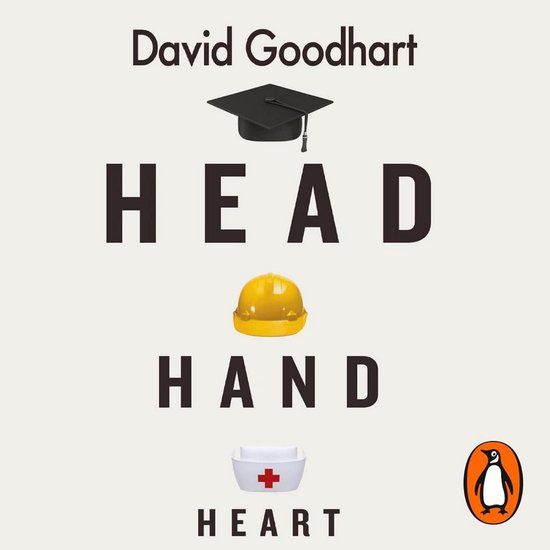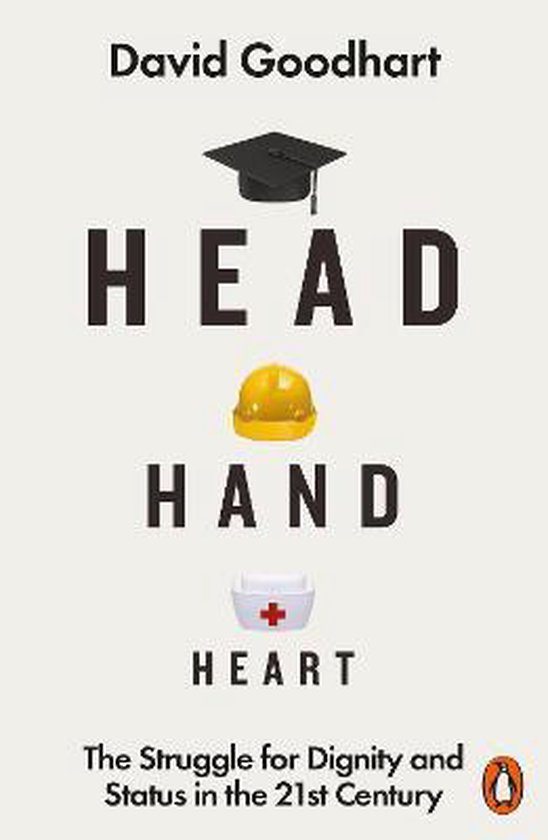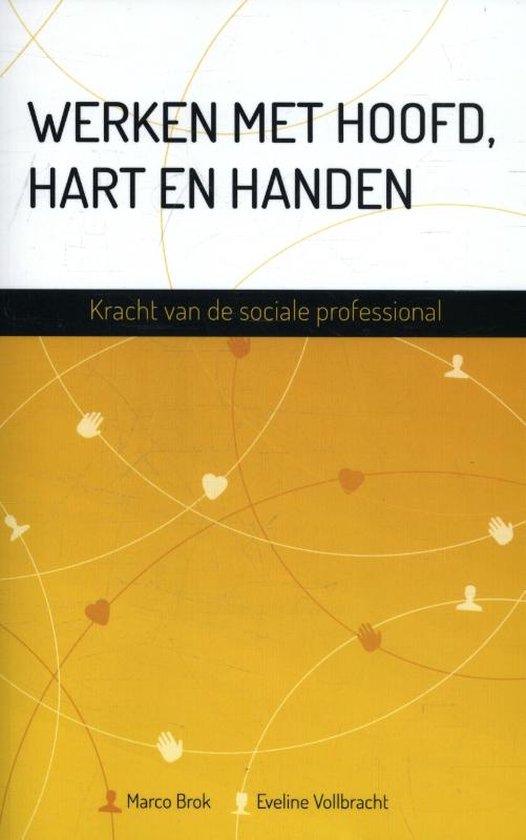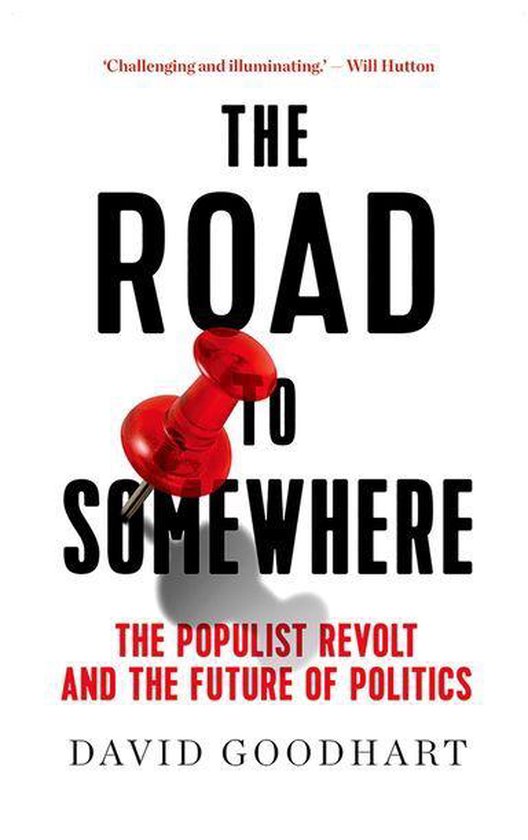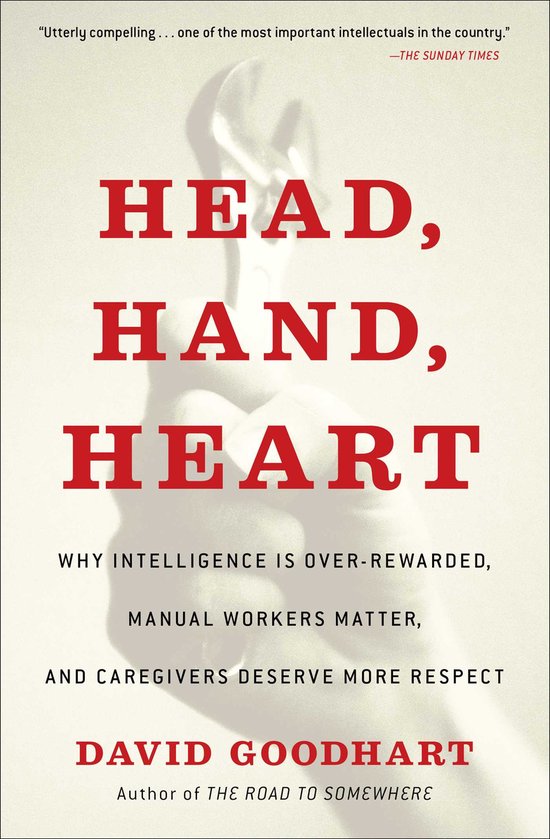
Head, Hand, Heart
A Financial Times best book of 2020, an “utterly compelling” (The Sunday Times, London) argument from leading political analyst David Goodhart about the severely imbalanced distribution of status and work in western societies.
The coronavirus pandemic revealed what we ought to have already known: that nurses, caregivers, supermarket workers, delivery drivers, cleaners, and so many others are essential. Until recently, this work was largely regarded as menial by the same society that now lauds them as heroes. How did we get here?
“With great clarity and unfailing sympathy for the human condition,” (Matthew Crawford, New York Times bestselling author of Shop Class as Soulcraft) this follow-up to the bestselling The Road to Somewhere divides society into people who work with their Heads (cognitive work), with their Hands (manual work), or with their Hearts (caring work), and considers each group’s changing status and influence. Today the “best and the brightest” trump the “decent and hardworking.” Qualities like character, compassion, craft, and physical labor command far less respect in our workforce. This imbalance has led to the disaffection and alienation of millions of people.
David Goodhart reveals the untold history behind this disparity and outlines the challenges we face as a result. Cognitive ability has become the gold standard of human esteem, and those in the cognitive class now shape society largely in their own interest. To put it bluntly: smart people have become too powerful.
A healthy, democratic society respects and rewards a broad range of achievements, and provides meaning and value for people who cannot—or do not want to—achieve in the classroom and professional career market. We must shift our thinking to see all workers as essential, and not just during crises like the coronavirus pandemic. “Insightful and provocative,” (Michael Lind, author of The New Class War) this is a “deeply felt and persuasive call for rethinking the social order” (Publishers Weekly).
The coronavirus pandemic revealed what we ought to have already known: that nurses, caregivers, supermarket workers, delivery drivers, cleaners, and so many others are essential. Until recently, this work was largely regarded as menial by the same society that now lauds them as heroes. How did we get here?
“With great clarity and unfailing sympathy for the human condition,” (Matthew Crawford, New York Times bestselling author of Shop Class as Soulcraft) this follow-up to the bestselling The Road to Somewhere divides society into people who work with their Heads (cognitive work), with their Hands (manual work), or with their Hearts (caring work), and considers each group’s changing status and influence. Today the “best and the brightest” trump the “decent and hardworking.” Qualities like character, compassion, craft, and physical labor command far less respect in our workforce. This imbalance has led to the disaffection and alienation of millions of people.
David Goodhart reveals the untold history behind this disparity and outlines the challenges we face as a result. Cognitive ability has become the gold standard of human esteem, and those in the cognitive class now shape society largely in their own interest. To put it bluntly: smart people have become too powerful.
A healthy, democratic society respects and rewards a broad range of achievements, and provides meaning and value for people who cannot—or do not want to—achieve in the classroom and professional career market. We must shift our thinking to see all workers as essential, and not just during crises like the coronavirus pandemic. “Insightful and provocative,” (Michael Lind, author of The New Class War) this is a “deeply felt and persuasive call for rethinking the social order” (Publishers Weekly).
| Auteur | | David Goodhart |
| Taal | | Engels |
| Type | | Paperback |
| Categorie | | Mens & Maatschappij |
